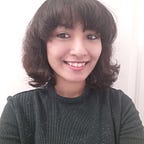Become More Creative by Doing This One Thing Everyday
Why are some people always able to come up with really great ideas on the fly while others struggle? You would tend to think it all comes down to intelligence. While this may be true to some extent, it is not always the case.
If you are someone who creates content regularly or who has a career that calls for out-of-the-box thinking, then you recognize that ideas are your most valuable assets. And one of the best ways to consistently have ideas is by learning new things.
It was a late afternoon and my classmates and I were seated in a brightly lit art studio on the fifth floor of a worn-out college building sketching a still-life under the watchful eyes of our silver-haired art professor.
Quiet for the most part, our wizened professor paced between desks as he watched us sketch, but I knew from the way his eyes were squinted in concentration that he was about to say something.
“Learn one new thing every single day,” he suddenly said in his gravelly voice, the light from the setting sun streaming in through the windows and tracing shadows along the contours of his wrinkled face. He looked around to see if we were paying attention and then went on:
“It doesn’t matter what it is about or who you learn it from. Make notes because you may know what you don’t know but sometimes you don’t know what you already know.”
- My Art Professor
People clean. We get rid of the dust in our houses, we leave jobs we don’t like, we quit relationships that don’t fit us. But no matter what we discard, the one thing that we should strive to record, being creatures who are constantly growing and evolving, is the knowledge we gain over a lifetime.
What you learn could be as random as something new you noticed today or something someone mentioned that you found intriguing or that made you think. If that popular book “Atomic Habits” by James Clear is anything to go by, if you developed the habit of learning one new thing every single day, that is 365 (366 if it’s a leap year) new things you could learn every single year. Over time, that amounts to a lot of insights.
In the Sherlock Holmes mystery A Study in Scarlet, we discover that Sherlock is unaware of the Copernican theory (the sun being at the center of the solar system with the planets revolving around it).
“You see,” he explained, “I consider that a man’s brain originally is like a little empty attic, and you have to stock it with such furniture as you choose. A fool takes in all the lumber of every sort that he comes across, so that the knowledge which might be useful to him gets crowded out, or at best is jumbled up with a lot of other things, so that he has difficulty laying his hands upon it. Now the skillful workman is very careful indeed as to what he takes into his brain-attic. He will have nothing but the tools which may help him in doing his work, but of these he has a large assortment, and all in the most perfect order. It is a mistake to think that that little room has elastic walls and can distend to any extent. Depend upon it there comes a time when for every addition of knowledge you forget something that you knew before. It is of the highest importance, therefore, not to have useless facts elbowing out the useful ones.”
“But the Solar System!” [Dr. Watson] protested.
“What of the deuce is it to me?” he interrupted impatiently: “you say that we go round the sun. If we went round the moon it would not make a pennyworth of difference to me or to my work.”
You see, I think Sherlock is right to an extent. It is ideal to keep one’s mind organized with only what we find useful in daily life because we couldn’t possibly use or remember everything we have ever learnt. Because as he suggests, there are things you know and the things that are hidden in the back of your mind that you may have forgotten you learned.
However, in our ever-evolving lives, how are we supposed to decide which things are useful and which aren’t? I do think that we should always be approaching learning new things with an open mind even if they seem random and not particularly useful at first. This is especially true for those who consider themselves to be creative in general.
Since it is not possible to remember everything we learn, it is important to try and maintain a record of things and do it with the same level of intention used to do things such as save money. Great ideas could turn into money after all.
Maintaining a notebook, excel sheet, recording audio clips, or perhaps downloading Evernote on your phone to jot down quick tidbits of things you learn during the day could accumulate into a priceless treasure trove of potential ideas waiting to be transformed into content. Because as the saying goes, information is wealth. And you never know when the Muse of Inspiration will strike.
A good example of this is Avis Crocombe who lived in the 19th century. The recently-discovered notes she made over her years of employment as head cook at a stately English country house spawned content that is now enjoyed by people all over the world. The popular videos made by the English Heritage Trust, a charity that maintains over 400 monuments (including the country house Avis Crocombe worked at), now has over 5 million views.
And even if you are someone who does not typically engage in creative vocations on a regular basis, recording what you learn could still help you develop new perspectives or at the very least, make for interesting anecdotes in conversation.
